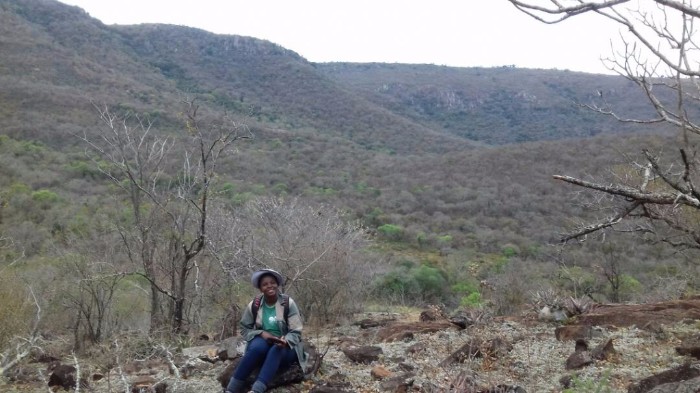Fezile Mtsetfwa is a PhD student at the School of Natural Resources and Environment enrolled in the Interdisciplinary Ecology Program. She also works for the Center for African Studies as the Managing Editor of the African Studies Quarterly (ASQ) journal. Over the summer Fezile traveled to Swaziland to conduct field research that was partially sponsored by CAS through the Jeanne and Hunt Davis Summer Research award. Her research in Swaziland focuses on determining the effects of climate change and land use change on the distribution of the savanna biome. Her approach uses a suite of functionally diverse big trees: Marula, leadwood and knobthorn tree species to investigate the factors that could inhibit or promote the ability of large savanna tree species to move within their suitable climates.

The northeastern region of Swaziland is part of the Maputo-pondoland-Albany hotspot, which is an expanse of land shared by these three countries covering about 274,136 km2 and harboring 1,900 endemic plant species. Swaziland has a wide range of temperatures and rainfall gradients within its bounds thus allowing for different forms of savanna biomes: variations in bushveld and grassland. This makes for an ideal place for a natural experiment looking at how vegetation composition transitions in savannas as climate changes across the landscape.
Over the summer Fezile traveled throughout the country identifying field sites across the climate gradient of Swaziland and collecting data for her research. Additionally, she took five days off from her fieldwork in Swaziland to teach a field project for the Organization for Tropical Studies at the Kruger National Park in South Africa. Fezile will talk more about her research and preliminary findings of the summer field survey at the SASA lunch on November 29 from 11:45 -12:45 pm.